Advanced Optimization Techniques for Lung Cancer Detection Using Machine Learning and Image Processing
Problem Definition
The detection of lung cancer using Artificial Intelligence (AI) methodologies presents a significant challenge due to the intricate nature of lung imaging techniques and the limitations of current machine learning models. The need for accurate and reliable detection methods is crucial in ensuring early diagnosis and treatment of this deadly disease. The selection of appropriate AI techniques and methods for pre-processing images, segmenting them, and effectively classifying them for accurate detection of lung cancer is essential. Current traditional methodologies may not always deliver the desired level of accuracy and improvement is needed to enhance the detection rates. The complexities involved in this domain call for a sophisticated solution that can address the limitations and problems faced in current lung cancer detection systems.
Objective
The objective of this project is to improve the accuracy of lung cancer detection using Artificial Intelligence (AI) techniques. The proposed work involves developing an AI-based system that utilizes advanced methodologies for image processing, segmentation, and classification. By implementing different filtration techniques and a Watershed transformation for segmentation, the system aims to enhance the accuracy of lung cancer detection. Additionally, the use of a Support Vector Machine (SVM) model with optimized hyperparameters using the Firefly optimization algorithm is expected to further improve the results. The choice of MATLAB as the software platform indicates a robust framework for implementing complex AI algorithms in healthcare applications.
Proposed Work
The project aims to address the challenging task of lung cancer detection through the utilization of Artificial Intelligence (AI) techniques. By identifying the research gap in the effectiveness of existing machine learning models in this domain, the objective is to improve accuracy in lung cancer detection. The proposed work involves the development of an AI-based system that involves advanced methodologies for image processing, segmentation, and classification.
By implementing different filtration techniques for isolating areas of interest in medical images, followed by a Watershed transformation for segmentation, the system aims to enhance the accuracy of lung cancer detection. The use of a Support Vector Machine (SVM) model as the classifier is notable, with a unique approach of optimizing its hyperparameters using the Firefly optimization algorithm.
This bio-inspired metahistoric algorithm is expected to contribute to better overall results in lung cancer detection. The choice of MATLAB as the software platform for this project further indicates a robust and reliable framework for implementing these complex AI algorithms in healthcare applications.
Application Area for Industry
This project can be utilized in the healthcare industry, specifically within the medical imaging sector for the detection of lung cancer. The proposed AI-based lung cancer detection system can benefit radiology departments and healthcare facilities by providing more accurate and efficient detection of lung cancer through advanced methodologies. The challenges of selecting appropriate AI techniques, pre-processing images, segmenting them, and classifying them effectively for accurate detection can be addressed by implementing the filtration procedures, Watershed transformation for segmentation, and tuning SVM hyperparameters using the Firefly optimization algorithm. By utilizing these solutions, the healthcare industry can improve the accuracy of lung cancer detection, leading to earlier diagnosis, better treatment outcomes, and ultimately saving lives. Other industrial sectors such as pharmaceuticals, research institutions, and technology companies can also benefit from this project by integrating the AI-based lung cancer detection system to enhance their research and development processes, improve drug discovery, and contribute to advancements in healthcare technology.
Application Area for Academics
The proposed project on lung cancer detection using Artificial Intelligence has the potential to significantly enrich academic research, education, and training in the field of biomedical imaging and machine learning. This project addresses a critical healthcare issue and provides a platform for innovative research methods and data analysis techniques within educational settings.
By developing an AI-based system for lung cancer detection, researchers can explore new avenues in medical image processing and machine learning. The project involves advanced methodologies such as image filtration, segmentation using Watershed transformation, and optimization of SVM parameters using the Firefly algorithm. These techniques not only enhance the accuracy of lung cancer detection but also offer a learning opportunity for researchers, MTech students, and PHD scholars to explore cutting-edge technologies in the field.
The use of MATLAB software and algorithms such as the Firefly Optimization Algorithm and SVM make this project relevant to researchers working in the areas of image processing, machine learning, and healthcare analytics. By providing access to the code and literature of this project, students and researchers can leverage the innovative methods and technology for their own research work in image analysis and classification.
The future scope of this project includes the potential application of the developed AI system in clinical settings for real-time lung cancer detection and diagnosis. Additionally, the project can be extended to explore other types of cancer detection using similar AI methodologies. Overall, this project has the potential to contribute significantly to academic research, education, and training in the field of healthcare analytics and AI-based biomedical imaging.
Algorithms Used
The major algorithms used in this research include the Firefly Optimization Algorithm and the Support Vector Machine (SVM). The Firefly Algorithm, a bio-inspired metaheuristic algorithm, is utilized for optimizing the parameters of the SVM. The SVM, a commonly used machine learning algorithm for classification problems, is tailored and improved for this biomedical application for better accuracy in lung cancer detection.
Keywords
Artificial intelligence, Lung cancer detection, Image segmentation, Support vector machine, SVM, Firefly optimization algorithm, Biomedical applications, Medical imaging, Image filtration, MATLAB, Watershed transformation, Machine learning, Code optimization, Hyperparameter tuning, Algorithm selection, Feature extraction, Sensitivity, Specificity, Healthcare.
SEO Tags
Artificial intelligence, Lung cancer detection, Image segmentation, Support vector machine, SVM, Firefly optimization algorithm, Biomedical applications, Medical imaging, Image filtration, MATLAB, Watershed transformation, Machine learning, Code optimization, Hyperparameter tuning, Algorithm selection, Feature extraction, Sensitivity, Specificity, Healthcare.
| Shipping Cost |
|
No reviews found!















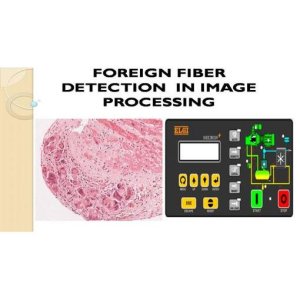
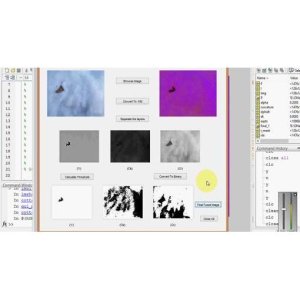
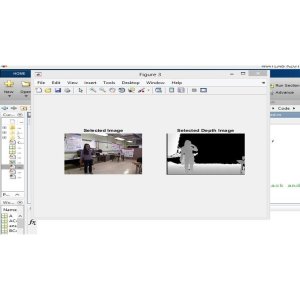
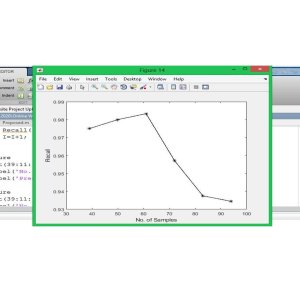
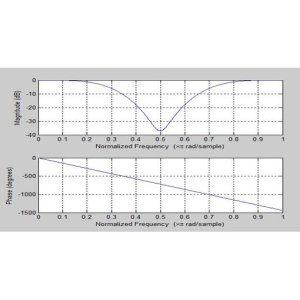
































No comments found for this product. Be the first to comment!